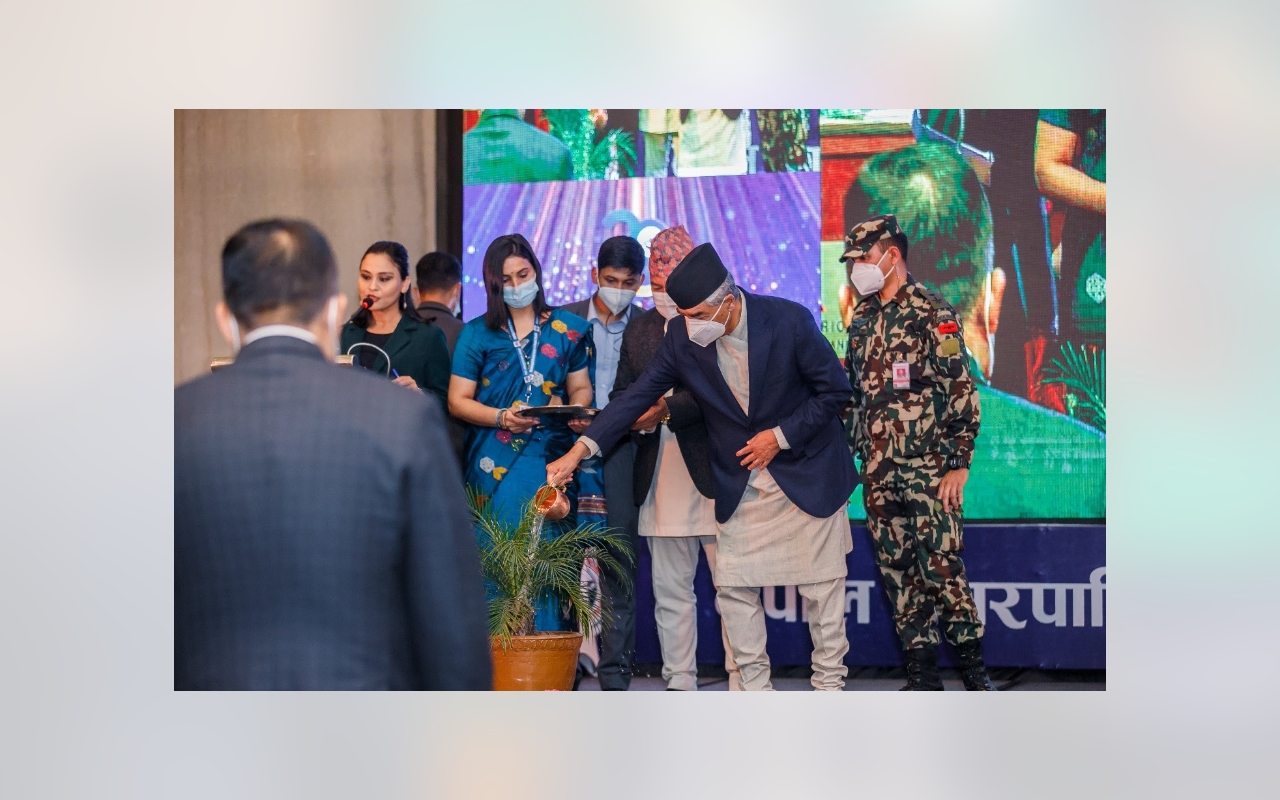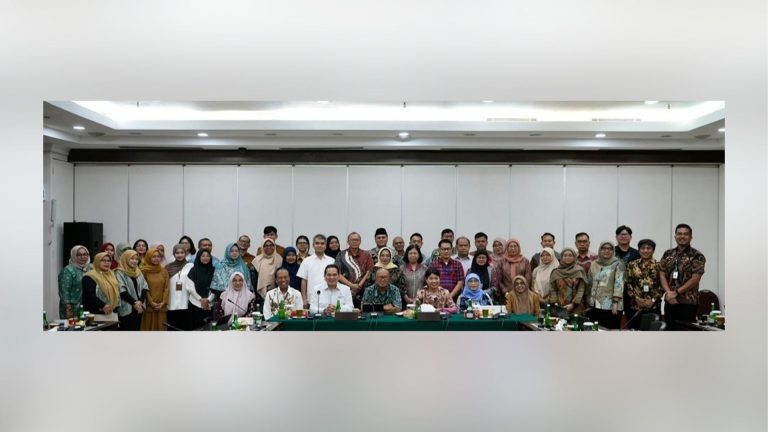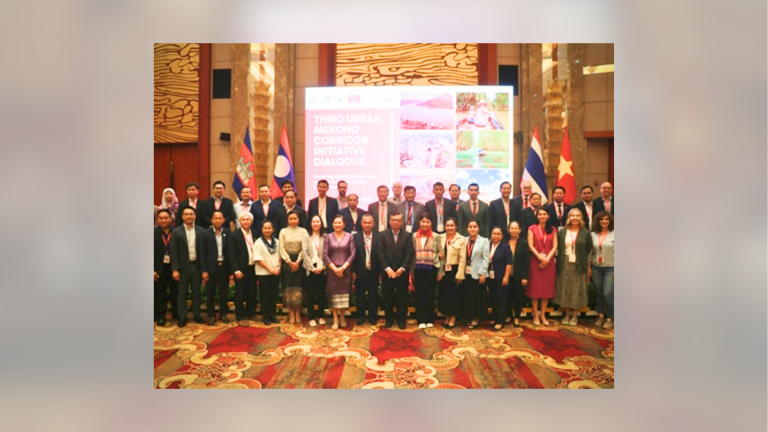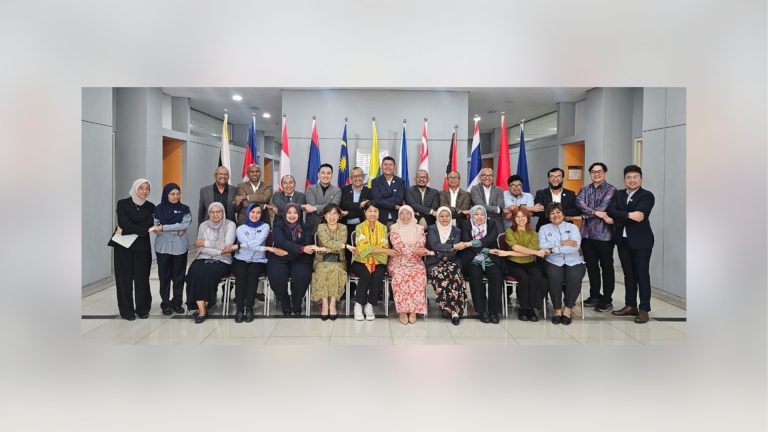13 March 2022 | UCLG ASPAC Sanitation Programme, The Municipalities Network Advocacy for Sanitation in South Asia (MuNASS) Phase II, a programme funded by the Bill and Melinda Gates Foundation (BMGF) was formally launched in Nepal during the 29th Establishment Day of Municipal Association of Nepal (MuAN) in the presence of Right Honorable Nepal Prime Minister, Mr. Sher Bahadur Deuba. The programme is executed by UCLG ASPAC with MuAN as the implementing partner and Environment and Public Health Organisation (ENPHO) as the technical partner in Nepal.
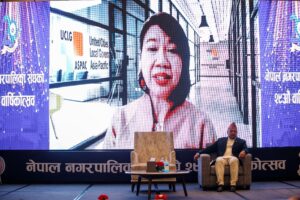 “MuNASS is not a project but a safe sanitation programme we are executing in Bangladesh and Nepal to strengthen the capacity of local governments,” said Dr. Bernadia Irawati Tjandradewi, Secretary General of UCLG ASPAC in a video message during the event. “UCLG ASPAC, along with MuAN, is also a part of the City-Wide Inclusive Sanitation Alliance in Nepal or CWISAN – an initiative of organisations working on sanitation in Nepal to collaborate and build upon the efforts of one another. I urge all development partners to support this wonderful initiative,” she added.
“MuNASS is not a project but a safe sanitation programme we are executing in Bangladesh and Nepal to strengthen the capacity of local governments,” said Dr. Bernadia Irawati Tjandradewi, Secretary General of UCLG ASPAC in a video message during the event. “UCLG ASPAC, along with MuAN, is also a part of the City-Wide Inclusive Sanitation Alliance in Nepal or CWISAN – an initiative of organisations working on sanitation in Nepal to collaborate and build upon the efforts of one another. I urge all development partners to support this wonderful initiative,” she added.
Among others, MuNASS Phase II aims to demonstrate innovation on Sustainable Development Goal (SDG) Goal 6.2 measurement by mobilising cities and local governments in South Asia, documentation of the municipal-led investment for CWIS and FSM in South Asia is available and Goal 6.2 are mainstreamed into the regional agenda through advocacy, knowledge exchange and joint activities among municipalities in the Asia-Pacific region. The programme involves the Local Government Associations (LGAs) in countries covering Bangladesh, Nepal, Sri Lanka, Cambodia, Viet Nam and Indonesia — who are all members of UCLG ASPAC.


During the event, MuAN also signed the Memorandum of Understanding (MoU) with seven local governments across the seven provinces in Nepal to replicate its work during MuNASS Phase I and also act as a hub to surrounding municipalities and assist in developing a total of 65 Shit Flow Diagram (SFD). The seven hubs include:
- Biratnagar Metropolitan City of Province 1;
- Janakpur Sub-Metropolitan City of Madhesh Province;
- Hetauda Sub-Metropolitan City of Bagmati Province;
- Pokhara Metropolitan City of Gandaki Province;
- Tulsipur Sub-Metropolitan City of Lumbini Province;
- Birendranagar Municipality of Karnali Province; and,
- Dhangadi Sub-Metropolitan City of Sudurpaschim Province.
The current phase is a build-up from the earlier phase that focused in Bangladesh and Nepal on capacity building, implementing national policy and strategy on sanitation with a focus on Fecal Sludge Management (FSM) and non-sewered sanitation system in line with Goal 6, as well as conduct a feasibility study to develop a sustainable detailed project planning and action plan that improves accessibility on financial option through different funding mechanisms such as public-private partnership, cooperation with banks and development agencies and communities.
Speaking at the occasion, UCLG ASPAC Secretary General also thanked the Nepal Prime Minister for being part of the physical session of the 8th UCLG ASPAC Congress held in Nepal on 7-9 September 2021. Although the host was Zhangzhou (China), the physical session was hosted in Nepal with a limited number of physical participants due to the COVID-19 pandemic. Over 800 Mayors and their representatives from across the Asia-Pacific Region joined virtually.
“As in most of our work, it was a wonderful collaboration of local governments that made the event possible despite the challenges of the pandemic,” said Dr. Bernadia. She also lauded Nepal’s initiative to encourage women’s participation in local governance which has remained an “exemplary example” to showcase to other countries in Asia and the Asia Pacific region.
In Nepal, the Election Commission has mandated that at least 40 per cent of total nominees by political parties has to be female, including a rule enforcing that the chief and deputy chief nominations put forth by each political party in each local unit be gender-even.
The local government election in Nepal has been announced to be held on 13 May 2022.
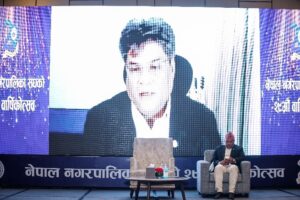 In another video message, Dr. Roshan Raj Shrestha, Deputy Director of BMGF, cited examples from the Swaccha Bharat Mission (SBM) 2.0 Campaign in neighbouring India and urged local governments leaders for coordinated efforts on sanitation to attain sustainable development goals.
In another video message, Dr. Roshan Raj Shrestha, Deputy Director of BMGF, cited examples from the Swaccha Bharat Mission (SBM) 2.0 Campaign in neighbouring India and urged local governments leaders for coordinated efforts on sanitation to attain sustainable development goals.
“It is a proud moment that a recent survey by UNICEF and WHO’s Joint Monitoring Programme has placed Nepal on the top among South Asian countries for fulfilling basic sanitation,” said Dr. Shrestha of BMGF. “The challenge now is to ensure that both the rich and poor have an easy reach to sanitation facilities that will help us attain the SDGs. There need to be resources and sustainable infrastructure at the municipality-level and strong coordination with the central government”
“The City-Wide Inclusive Sanitation (CWIS) is a global movement that will try to assist municipalities to reach that through MuNASS Phase II,” he added.








